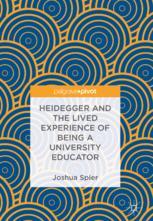

Most ebook files are in PDF format, so you can easily read them using various software such as Foxit Reader or directly on the Google Chrome browser.
Some ebook files are released by publishers in other formats such as .awz, .mobi, .epub, .fb2, etc. You may need to install specific software to read these formats on mobile/PC, such as Calibre.
Please read the tutorial at this link: https://ebookbell.com/faq
We offer FREE conversion to the popular formats you request; however, this may take some time. Therefore, right after payment, please email us, and we will try to provide the service as quickly as possible.
For some exceptional file formats or broken links (if any), please refrain from opening any disputes. Instead, email us first, and we will try to assist within a maximum of 6 hours.
EbookBell Team

4.4
72 reviewsThis book explores the lived meanings of being a university educator from an existential perspective. The book enriches our understanding of educators' experiences in light of Martin Heidegger's early philosophy, and vice versa (opening our understanding of Heidegger's philosophy through educators' experiences). Also drawing on the philosophical insights of Hans-Georg Gadamer, the book situates the purposes and experiences of the ‘educator’ in historical and contemporary contexts. In doing so, the author reveals that being a university educator is essentially characterised by conversation and time. Inspired by the author’s own experiences of teaching community development and sociology within a youth-work specific bachelor degree, the book invites educators to apply existential philosophy as a tool to reflect upon their own experiences and to reconnect with the question of what it means to be an educator in their shared world of practice. This thoughtful volume is sure to resonate with the experiences of readers who educate within a university context.